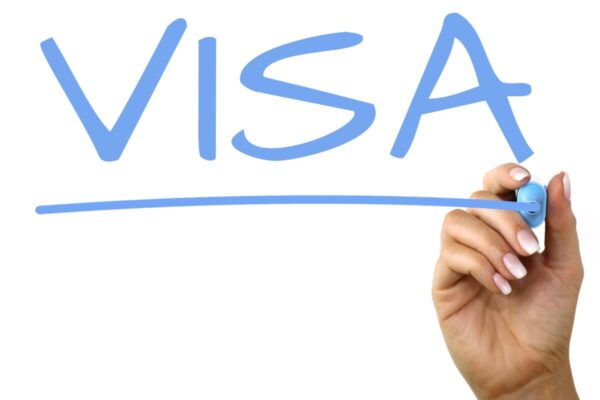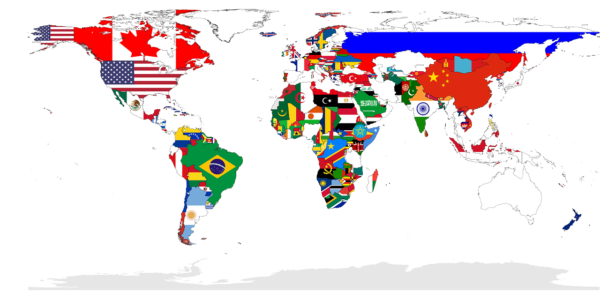051 8439995, 042 35911332

Before embarking on your overseas academic adventure, consider some money-wise strategies to enhance your experience. Many universities entice students with the opportunity to spend a semester or year abroad, and this is especially appealing to the current generation of college students, known as Gen Z. Embracing the perks of travel, Gen Z values the chance to explore new cultures and connect with people from various backgrounds while completing their degrees. The popularity of studying abroad reflects this desire for a well-rounded educational experience.
However, it’s important to acknowledge that studying abroad is a privilege and can be considered a luxury. With the financial challenges many students face, covering basic college tuition alone is often a struggle, not to mention the additional costs of living in a foreign country. The key is to discover ways to make money while studying abroad, creating an opportunity to fully enjoy your international experience without putting a strain on your finances.
Engaging in employment during your studies overseas is not just a financial solution; it also provides a unique chance to immerse yourself in the local culture. By working, you gain firsthand experience of how people in that region approach their jobs, adding an extra layer to your overall cultural understanding.
Things You Will Find In This Page
Is It Possible to Work While Study Abroad?
Certainly, working while studying abroad is a possibility, but it comes with certain considerations. The primary factor revolves around the legal aspects of employment in the host country.
It’s crucial to confirm whether you are permitted to earn money while pursuing your studies in your chosen foreign destination. This legality is contingent on your specific circumstances, including your nationality and the country’s regulations. To navigate this, delve into the terms outlined in your student or tourist visa for your study abroad location, as these details can differ widely from one country to another.
To ascertain your eligibility for employment during your study abroad experience, explore the guidelines provided by your visa and conduct thorough research tailored to your unique situation.
Ensuring Legal Earning While Studying Abroad
To legally earn money during your study abroad venture, the first step is to confirm that your visa aligns with employment provisions. The type of visa you hold plays a crucial role in determining your eligibility for work opportunities. Here’s a straightforward guide:
1. Verify Your Visa Type:
Check the specifics of your visa to understand its conditions regarding employment. Different visas may have varying regulations, so identifying your visa type is essential. This information will clarify whether or not you are allowed to work while studying abroad.
By taking this initial step, you can avoid legal complications and ensure that your work activities align with the terms of your visa, fostering a smooth and lawful experience during your time abroad.

Here’s how it’s done:
Contact the Embassy or Consulate
If you want specific information on making money while studying abroad, try contacting the relevant country’s Embassy or Consulate well in advance, ideally a few months before you go. Have a discussion with the representative about the details of your case, including whether or not you can work and what kind of visa you need to do so. This proactive approach helps to facilitate a faster transition and compliance with the requirements of the host nation by ensuring that you have correct and up-to-date facts customized to your circumstances.
Contact the School
Contacting the educational institution you will be attending is another valuable resource for information on earning money while studying abroad. Similar to reaching out to the Embassy, initiate communication with your school well in advance to explore your options. Additionally, consult your program advisor at your home university or study abroad provider for insights into legal employment possibilities.
If your motive for seeking employment is to cover tuition costs, inquire about potential financial aid options offered by the school. Some institutions may assist, and there could be opportunities for on-campus employment. This proactive approach to gathering information ensures that you have a comprehensive understanding of your options and can make informed decisions regarding work opportunities while studying abroad.
2. Select Countries That Provide More Than Student Visas
If you haven’t yet decided on a study abroad program or destination, consider countries that offer a Working Holiday Visa. This visa allows you to work and earn money while abroad. Currently, countries like Argentina, Australia, Austria, France, Germany, Hong Kong, Ireland, Italy, Japan, New Zealand, Singapore, and South Korea offer the Working Holiday Visa based on your nationality. It’s important to note that as global Covid restrictions ease, more countries may be added to this list. If you’re interested in studying in any of these countries and meet the requirements, applying for a Working Holiday Visa might be more advantageous than opting for a traditional Student Visa.

Comparatively, a Student Visa typically comes with more restrictions than a Working Holiday Visa. To explore whether a Working Holiday Visa could be a viable option for you, it’s advisable to communicate with the relevant embassies and schools. Discussing your situation with them will provide clarity on the available options and help you make an informed decision based on your preferences and circumstances.
Understanding Work Restrictions on Student Visas
Choosing a country for your studies may open up the possibility of residing there under a student visa that permits employment. However, it’s important to be aware that student visas often come with restrictions. For instance, in the UK, where many international students pursue their education, specific limitations apply to the types of work allowed:
- Permitted Work: Students on a UK student visa can engage in most kinds of work.
- Prohibited Activities: However, there are restrictions, including being self-employed, engaging in business activities, filling a full-time permanent vacancy, working as a professional sportsperson or entertainer (paid or unpaid), and practicing as a doctor or dentist in training unless on the foundation program.
These limitations are not unique to the UK and are common across various European student visas. It’s essential to recognize that while pursuing education abroad, student visas can pose significant constraints on your ability to earn money. Therefore, early and thorough consideration of these factors is crucial to ensure a well-informed and prepared approach.
3. Exploring Work to Study Options
If the notion of dealing with complicated legal documentation seems daunting, try researching Work-to-Study or Study & Work alternatives designed for students who want to make money while studying abroad. Specialized programs cater to students interested in teaching, hospitality, or medicine, and provide an organized approach to both study and employment in the host nations.
For instance, if your area of study is teaching, hospitality, or medicine, numerous courses equip you with the necessary skills while guiding you in navigating employment opportunities in specific countries. Examples include learning to be a paid ski instructor in New Zealand or working in the hospitality and culinary industry in Canada while training as a cook. Another avenue is teaching English abroad, where you can obtain qualifications while simultaneously working.
Job Opportunities While Studying Abroad
Once your paperwork is sorted, choosing a job that aligns with your study schedule is crucial for a balanced experience. While your primary focus is studying, finding employment that complements your academic commitments is essential, especially if you’re on a student visa.
Here are several ways to secure a job while studying abroad:
- On-Campus Jobs: Many schools provide on-campus job opportunities, allowing you to work with the school staff. Positions like school tour guide, administrative support, tech support, library assistant, or research assistant are common. While there might be restrictions on off-campus jobs, on-campus roles often offer flexibility, with working hours typically limited to around 20 hours per week.
- Freelancing: Platforms like Upwork or Fiverr offer opportunities to showcase your skills online and secure freelance work on a project basis. This flexibility allows you to manage your time effectively and focus on your studies. Teaching English online is another option either for those with experience or those willing to get certified while working abroad.
- Paid Internships or Job Transfers: If you already have work experience, explore the possibility of paid internships or job transfers abroad through your current employer. This provides an immersive experience and an opportunity to continue your job from home in another country.
- Work Exchange Programs: Participating in work exchange programs, where you work in exchange for accommodation and food, can offset living costs. These programs, often in hospitality or agriculture, provide real-world working experience and enhance your CV for future endeavors.
Working while studying abroad not only helps financially but also offers a unique travel and cultural experience. Even if you are financially secure, gaining work experience in a foreign country is invaluable and sets the stage for future success in your career. Consider spending time in a country with a different culture and language to maximize your work and study abroad experience, fostering cultural exchange and broadening your horizons. Working abroad allows you to be an active participant in the local community and enhances your understanding of diverse cultures, making your study abroad journey even more enriching.
